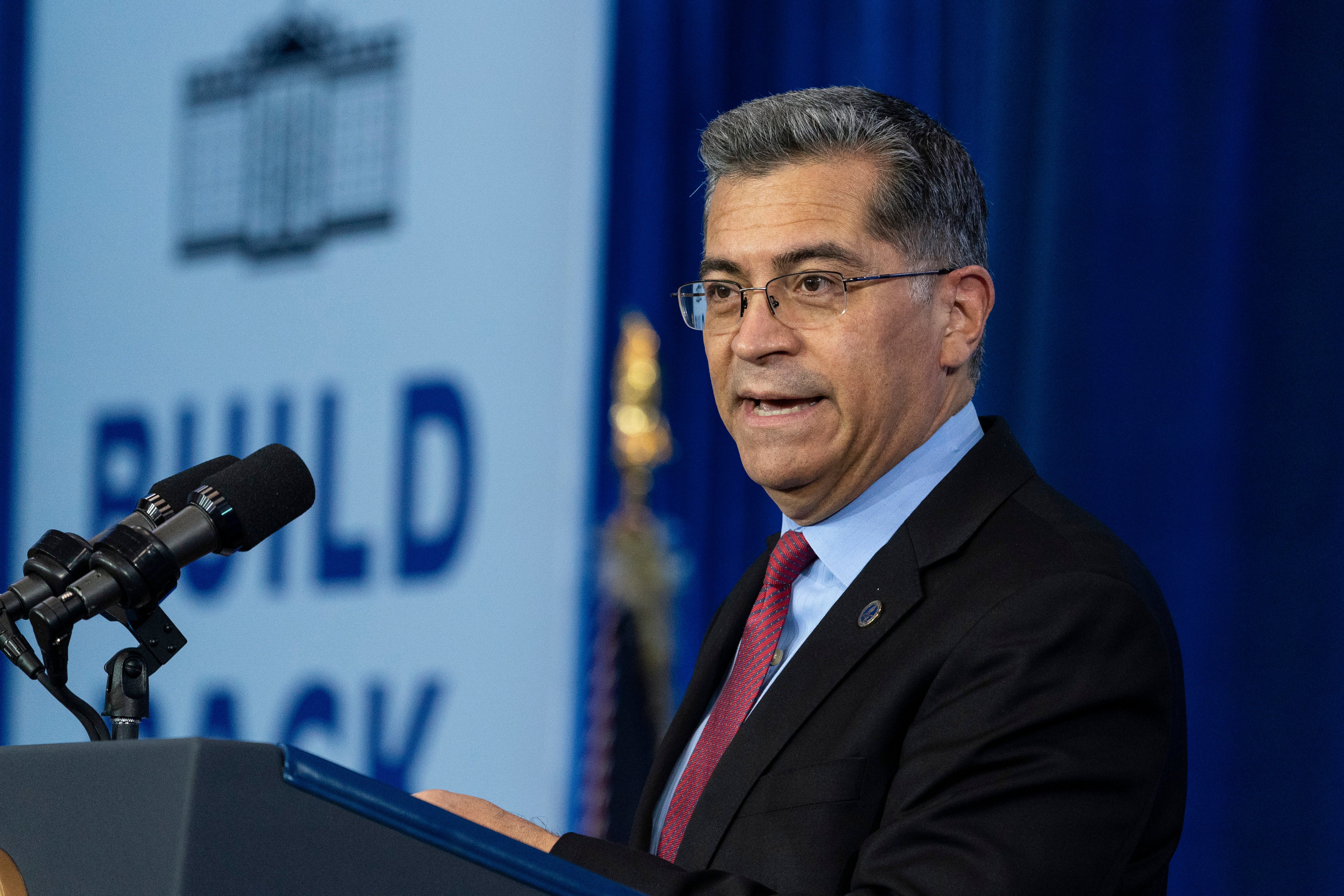US buys 600K doses of new COVID antibody awaiting clearance
The Biden administration says it has purchased enough doses of a yet-to-be approved antibody drug to treat 600,000 patients with COVID-19

Addressing diminished treatment options in the omicron wave, the Biden administration has purchased enough of a yet-to-be approved antibody drug to treat 600,000 COVID-19 patients, officials said Thursday.
The new monoclonal antibody from pharmaceutical giant Eli Lilly will be shipped out to states free of charge if the Food and Drug Administration approves the company's request for emergency use authorization, said Health and Human Services Secretary Xavier Becerra “We are going to try to be there to meet the demand,” he added.
The government's move comes after the two leading monoclonal antibody treatments in the U.S. turned out to be ineffective against the omicron variant, which now accounts for nearly all COVID-19 cases in the country. Data indicate that the Lilly drug works against omicron, including the new BA.2 mutation.
Laboratory-made monoclonal antibodies stand in for the human body's immune system by acting to block an invading virus. Delivered intravenously or by injection, the medicines are meant to be administered early in an infection to forestall severe disease and death. Former President Donald Trump received an antibody combination after he tested positive for the coronavirus in 2020.
But late last month the FDA revoked its emergency use authorization for Regeneron's antibody drug, along with another from Lilly. The two medications had been the the backbone of antibody treatment, and doctors were hard pressed to come up with fallbacks when they didn't work against omicron. Alternate therapies for early COVID-19 infections, including two new antiviral pills from Pfizer and Merck, have been in short supply. An antibody drug from GlaxoSmithKline that remained effective against omicron is also scarce.
The issue has had political ramifications because some Republican governors heavily promoted the original antibody treatments. Florida Gov. Ron DeSantis claimed the two antibody drugs that were faltering against omicron could still help some patients.
“We want to make sure that the treatments we provide work,” said Becerra. “If someone wants to suggest to Americans that they go elsewhere, that's not where we're going.”
Scientists say COVID-19 treatments like monoclonal antibodies are not a substitute for vaccination. They are usually reserved for people who are the most vulnerable, including seniors, transplant recipients and those with conditions like heart disease and diabetes.
Under the government's contract with Lilly, HHS would get about 300,000 treatment courses of the new antibody drug in February and another 300,000 in March. The medicines would be ready to ship following FDA authorization.
HHS said early data indicates that the new drug from Lilly works both against omicron and its BA.2 mutation, which accounts for a still small but quickly growing share of U.S. cases. Should BA.2 keep rising, the new antibody drug could offer a viable treatment option and a chance to keep pace.
“It's a constant staying ahead of this virus,” said Becerra.
The Lilly contract was awarded through collaboration between an HHS unit called the Office of the Assistant Secretary for Preparedness and Response and the Pentagon's Joint Program Executive Office for Chemical, Biological, Radiological and Nuclear Defense.
Though COVID-19 cases and new hospitalizations are falling as omicron recedes, more than 86,000 patients remain in the hospital. Deaths have continued to rise, averaging about 2,400 a day.
Bookmark popover
Removed from bookmarks